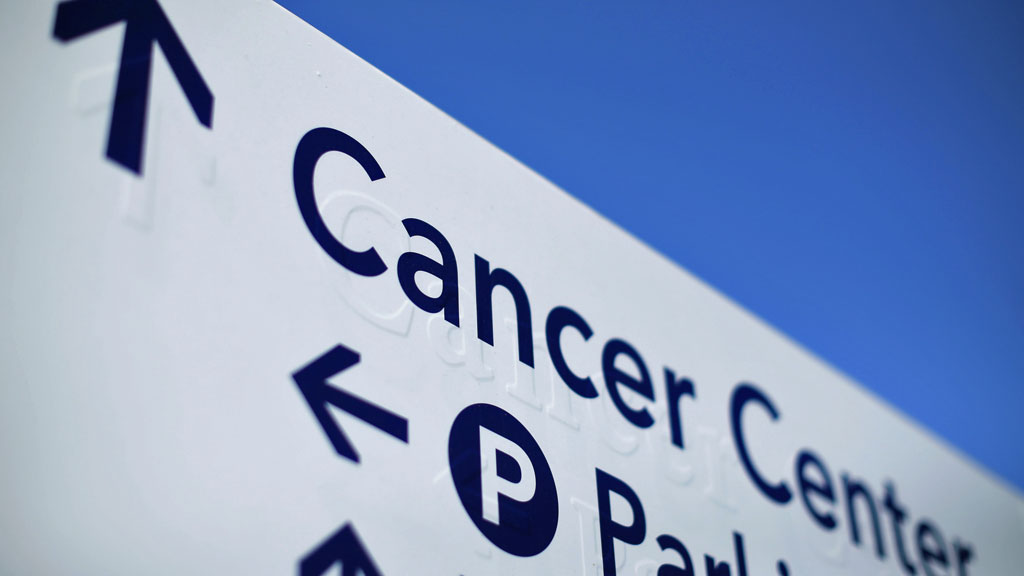Saliva sample ‘could offer simple cancer test’
Within five years a saliva sample taken at a GP’s surgery could screen patients for their risk of developing breast and prostate cancer, according to a study of the genetic risk of three cancers.

New findings could spare thousands of people from unecessary cancer screening every year, and save lives by identifying those at highest risk earlier.
“We’re on the verge of being able to use our knowledge of these genetic variations to develop tests that could complement breast cancer screening and take us a step closer to having an effective prostate cancer screening programme,” said Doug Easton, a genetic epidemiologist at the University of Cambrige who helped coordinate the study.
The Collaborative Oncological Gene-Environment Study (COGS), looked at DNA from around 200,000 people enrolled in cancer studies around the world. The results are being published in 13 different scientific papers this week.
The study identified more than 80 new regions of the genome that increase a persons risk of breast, prostate and ovarian cancer. The 1,000-strong team of scientists behind the study say the genetic markers should now be incorporated into screening programmes to predict an individual’s risk of developing one of these cancers.
Unnecessary testing
By better identifying those at highest risk they should allow treatment to be focused on them earlier. It should also spare thousands of others undergoing unccessary exploratory testing like biopsies, only to find they do not have cancer or benign forms of disease.
The study found 40 new genetic markers for breast cancer – a woman with a large number of the markers could have a 30 per cent increased risk of the disease. It found 23 markers associated with prostate cancer which, taken together, could increase lifetime risk of the disease by 50 per cent.
These results are the single biggest leap forward in finding the genetic causes of prostate cancer yet. Professor Ros Eeles
Taken together, breast, prostate and ovarian cancer kill nearly 27,000 people in the UK each year. Screening for breast cancer has greatly reduced the numbers of deaths from the disease. But mammograms are expensive and unecessary for many women who are genetically at very low risk of the disease.
In the UK there is no routine prostate cancer screening because the standard tests cannot distinguish between aggressive and mild forms of the disease.
“These results are the single biggest leap forward in finding the genetic causes of prostate cancer yet,” said Professor Ros Eeles at the Institute of Cancer Research.
“They allow us for the first time to identify men who have a very high risk of developing prostate cancer.”
Finding genetic markers
The average British man has a one-in-four chance of developing prostate cancer by age 60. If they test positive for the new markers that risk goes up to one-in-two. A woman’s lifetime risk of developing breast cancer is one in eight, but if she carries the new markers in addition to known breast cancer risk genes like BRCA1 and BRCA2, “she may be almost certain to develop the disease,” said Eeles.
While it’s a test result no woman would want to receive, it at leasts could help those women with a known family risk of breast cancer decide whether or not to go for extreme forms of prevention such as profilactic mastectomy or drug therapy.
The study identified 11 genetic markers for ovarian cancer, which is rarer than the other two. These markers will be less useful as a test for the disease, but could provide useful new insights into the biology of the disease, and point to other, yet to be discovered, genetic risk factors.
-
Latest news
-
As India goes to the polls in the world’s largest election – what do British-Indians think?6m

-
Tees Valley: Meet the candidates in one of the biggest contests coming up in May’s local elections4m

-
Keir Starmer says public sector reform will be a struggle7m

-
Nicola Sturgeon’s husband Peter Murrell charged with embezzlement of funds from SNP1m

-
Ukraine might finally get $60billion in American weapons and assistance to defend against Russia3m

-




